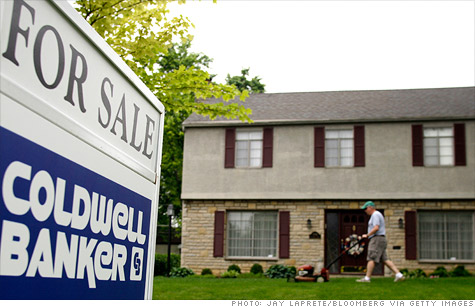The recession took a toll on Arizonans employed in real estate during the past five years with the loss of nearly 17,000 agents.
There are 35,864 real-estate agents with active licenses, down 32 percent from 2007 when there were 52,286 active agents, according to recent figures from the Arizona Department of Real Estate.
The number of license holders is down 4 percent from last year.
An additional 19,245 agents have inactive licenses, meaning they are not employed by a broker and cannot conduct any real-estate activity. That is up from 12,652 agents with inactive licenses in 2007.
“You saw during those years that Realtors had to weigh the economics to decide about staying in the business as a primary income generator,” said Rebecca Grossman, president and CEO of the Scottsdale Area Association of Realtors. “When the market is like that, if you’re not truly committed it’s difficult to make a living.”
The association saw its membership fall 11 percent in 2009 from the previous year. It bottomed out in 2011 at 7,068 members but has increased 2 percent this year to 7,200 members.
Meanwhile, there has been a gradual recovery in the housing market, Grossman said.
The Standard & Poor’s/Case-Shiller home-price index released Tuesday revealed increases in 19 of the 20 U.S. cities tracked from March to April.
San Francisco, Washington, D.C., and Phoenix posted the largest increases. Prices were up 2.5 percent in Phoenix, 2.8 percent in Washington and 3.4 percent in San Francisco.
Good agents forced out
Gordon Snyder, chairman of the Realtors group, said a lot of good agents were forced out of the business during the downturn.
“They had to make money and couldn’t hang on,” he said.
Now that the market has turned, Snyder said, he and other agents, brokers and title companies are seeing a tremendous amount of activity.
“I’ve had more deals in escrow at one time than ever before,” said Snyder, with Realty Executives.
The flip side is that the deals are about half the value of what they were at the market peak, he said.
The Northeast Valley’s luxury market is starting to recover with fewer “screaming deals” in Paradise Valley and Scottsdale, Snyder said.
Brokers holding steady
The number of brokers and real-estate companies has been more stable during the recession.
ADRE reports that there are 12,618 brokers statewide, down 3 percent from last year but up 1.6 percent from 2007. The number of brokers peaked at 13,120 in 2010.
There are 2,868 self-employed brokers. Active real-estate companies total 8,385 as of June 1, down 3.4 percent from last year and 3.1 percent from 2007.
Real-estate agents pay $110 for a license and $100 for a renewal.
Agents must work under the supervision of a broker. Brokers pay $225 for an original license and $250 for a renewal.
Gary Holloway of Zip Realty Inc. said it’s too early in the housing-market recovery for a lot of agents to get into the business.
“It’s going to start picking up,” he said. “We’ll start to see more agents as we get more inventory.”
Meanwhile, agents like Holloway are dusting off an old joke about a recovery that goes something like this: “Dear God, give me one more real-estate boom and I promise I won’t spend it all on toys.”
by Peter Corbett – Jun. 29, 2012 12:27 PM The Republic | azcentral.com

